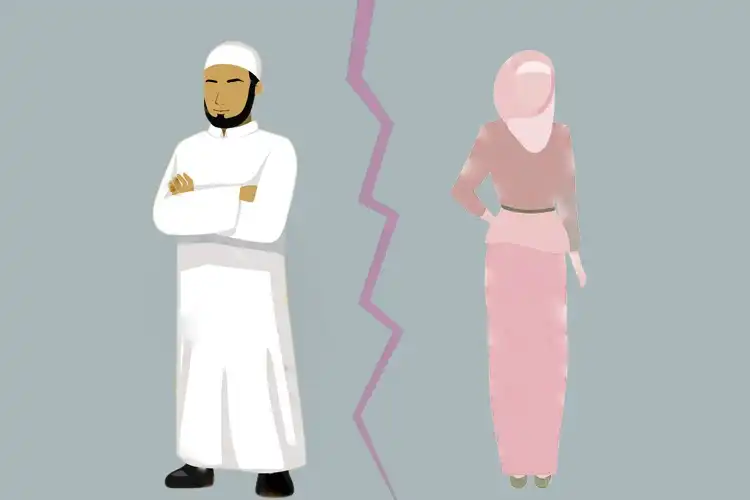
Saquib Salim
The Indian Muslims faced a strange problem during the 1920s. At a time when the British Government was providing ‘concessions’ to religious communities according to their numerical strength, a large number of Indian Muslim Women were found to be denouncing Islam and entering other religions. In Punjab, Christian missionaries had baptized a large number of Muslim women.
In 1913, a Muslim man asked for a Fatwa (Islamic Legal Opinion) from Maulana Ashraf Ali Thanvi, a respected Hanafi scholar from Deoband School. The man’s wife had gone to her parents and was not returning. Later, when he tried to pressurize her for coming home, his in-laws told him that she had left the fold of Islam, hence the contract of marriage stood annulled. The man wanted to know if it was really the case or if she was still his wife. Maulana ruled, “Annulled. Uttering words of unbelief, intentionally and knowingly, whether one believes in those words or not, whether it is one's view or someone else's instructions, necessarily constitutes unbelief in all cases. Since unbelief causes annulment of the marriage contract, the marriage [in question] is dissolved.”
The 1910s and 20s were the times when various women's movements were picking up pace. Muslim women organizations like the All India Muslim Ladies Conference had started challenging purdah and polygamy. Women like Begum Sultan Jahan, Abru Begum, Begum Waheed, and Begum Jahannara were stressing the need for women’s education. This awareness of their rights made women conscious of their oppression by husbands in a marriage as well. They would not live with a cruel husband.
Many women who wanted to leave their abusive husbands could not do so because according to the Hanafi School of Jurisprudence, which a majority of Indian Muslims follows, a woman could not divorce her husband except in case he was impotent. The only way out was to renounce Islam.
The women exercising this option became so huge by 1924 that poet-philosopher Muhammad Iqbal started raising it at public meetings. Muhammad Khalid Masud notes, “In a public lecture delivered in Lahore in 1924, Dr. Muhammad Iqbal, who died in 1938 expressed concern about these conversions. Iqbal questioned the validity of the Hanafi law that compelled Muslim women to abandon Islam to get rid of their husbands. He also urged Muslim scholars to exercise ijtihad-to issue independent legal opinions that were not tied to earlier opinions of the jurists of a particular school of law-in order to reform the Hanafi law on this point.”
Ulema (Islamic scholars) led by Maulana Ashraf Ali Thanvi started consulting jurists across different schools of thought for a solution. In 1931, Maulana revised his 1913 Fatwa and titled it - al-Hilat al-Najiza li'l-Halilat al-'Ajiza (A Successful Legal Device for the Helpless Wife). This was 201 pages long revised Fatwa where he pointed out that Indian Muslim Women are renouncing Islam as a legal device in absence of any legal relief against an abusive husband. In these special circumstances, he wrote that doctrine of the Maliki School of Jurisprudence could also be employed. Thus, he ruled, that Indian Muslim Women should be allowed to seek divorce from their husbands, a right which is called Khula in Islamic terminology.
Based on this Fatwa, Muhammad Ahmad Kazmi, a member of Jamiat-e-Ulema from Meerut, presented a bill to Central Legislature in 1936. While proposing the bill, Kazmi said, “The reason for proceeding with the bill is the great trouble in which I find women in India today. Their condition is heartrending, and to stay any longer without the provisions of the bill and allow the males to continue to exercise their rights and to deprive women of their rights given to them by religion would not be justifiable– the rights of women should not be jeopardized simply because they are not represented in this house. I am sure if we had a single properly educated Muslim woman here in this house, then absolutely different ideas would have been expressed on the floor of this house. I know, sir that the demand from educated Muslim women is becoming more and more insistent, that their rights be conceded to them according to Islamic law–. – I think a Muslim woman must be given full liberty, full right to exercise her choice in matrimonial matters.”
Radhabai Subaroyan, the only woman in the Assembly, said, “I feel this bill recognizes the principles of equality between men and women. It has been stated here and outside that though Islamic law lays down this principle, in actual practice in several parts of our country, it is ignored to the disadvantage of women.”
Also Read: When Muslim Women rejected polygamy in 1920
The bill was finally passed in 1939 as the Muslim Dissolution of Marriage Act, 1939. The Act provided Muslim Women with the right to divorce their husbands on several grounds.
